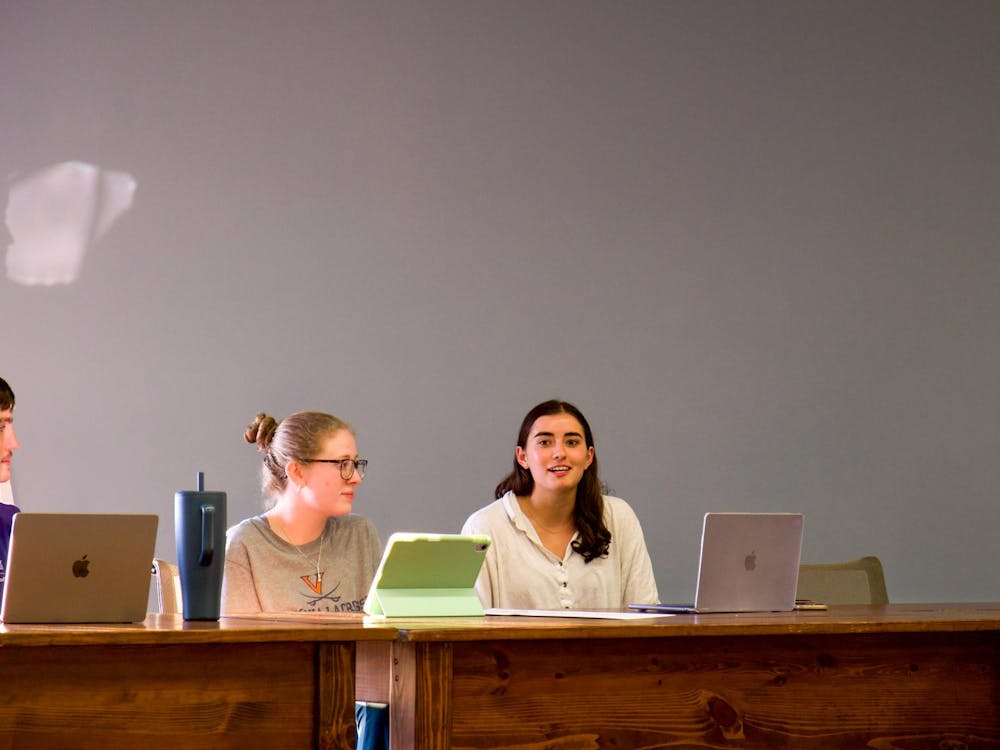Over $80,000 was raised Saturday evening at the sixth annual Ridley Scholarship Dinner to benefit recipients of the Ridley Scholarship for Richmond-area black University students. The total raised more than doubled last year's amount of $35,000.
The dinner, attended by nearly 250 guests at the Jefferson Club in Richmond, featured Politics Prof. Larry Sabato as moderator of a panel of University alumni.
This year's dinner was especially momentous because an anonymous patron challenged the U.Va. Club of Richmond, the host of the event, to meet his or her pledge of $200,000, event chair Alex Taylor said. In total, this sum would create an endowment large enough to provide the three currently enrolled Richmond Ridley scholarship recipients, as well as future recipients, with full tuitions, Taylor said, adding to the present annual $7,500 grant given to its beneficiaries.
According to Taylor, the panelists at the event, selected because of their experience and current positions of leadership, included Thomas F. Farrell II, president and CEO of Dominion Power; Charles "Corky" Conyers, a senior analyst at the U.S. Office of Personnel Management and a leader in the movement to create black fraternities at the University; James M. Trice Jr., co-founder of the scholarship fund and the first black alumnus to receive a chemical engineering degree from the University; and Barbara D. Savage, author, history professor at the University of Pennsylvania and the first black woman to live on the Lawn.
Panelists Conyers, Savage and Trice spoke about their experiences at the University in the 1950s and 1960s, a time when only 10 to 12 black students were admitted each year, Sabato said.
For Sabato, the most memorable parts of the evening were the shocking stories the panelists recounted.
"It's sad to find out just how unpleasant it was back then," he said. "They had to endure the singing of the 'Dixie' and the flying of the Confederate flag, they worried about physical violence." Sabato added that he wishes "every student, faculty and staff member could hear their stories."
Taylor also spoke to the sincerity behind the guest speakers' words. "It was a wonderful program," he said. "Each panel member spoke from the heart."
Syd Dorsey, a member of the Board of Visitors and the Ridley Fundraising Committee, said the event was a rare and extremely valuable occurrence.
"It certainly was an alignment of the planets having these speakers discuss their experiences as blacks at U.Va. and then for Sabato to comment on the political environment of the time," she said.
The collaboration of these speakers was geared toward raising awareness concerning black academic opportunities at the University, said Jenny DeGraff, assistant director of the Ridley fund. The Richmond Ridley scholarship is part of an umbrella fund of Ridley scholarships that offer funding to 13 black University applicants each year in order to attract the highest-achieving black students to the University.
"Walter Ridley Scholarships are a critical opportunity for the University to recruit outstanding African-American students from the Richmond area," Sabato said, "These scholarships give the University the opportunity to compete with Ivy League schools for the very best African-American students."
The fund is named after Dr. Walter Ridley, the first black alumnus of the University in 1953 and the first black alumnus to receive a doctoral degree from the same traditionally white, southern university, DeGraff said.
Although the anonymous donor's $200,000 goal was not reached at Saturday's event, the U.Va. Club of Richmond plans to implement "phase 2," which would involve establishing an endowment, Taylor said, using the challenge as a platform for financing more full tuition opportunities.
"Let's go beyond the sports and let's try to make [full] academic scholarships available ... We've got kids thinking that the only way to go to college fully funded is by running a football or shooting a basketball," Taylor said.






